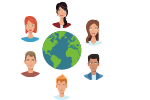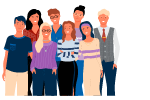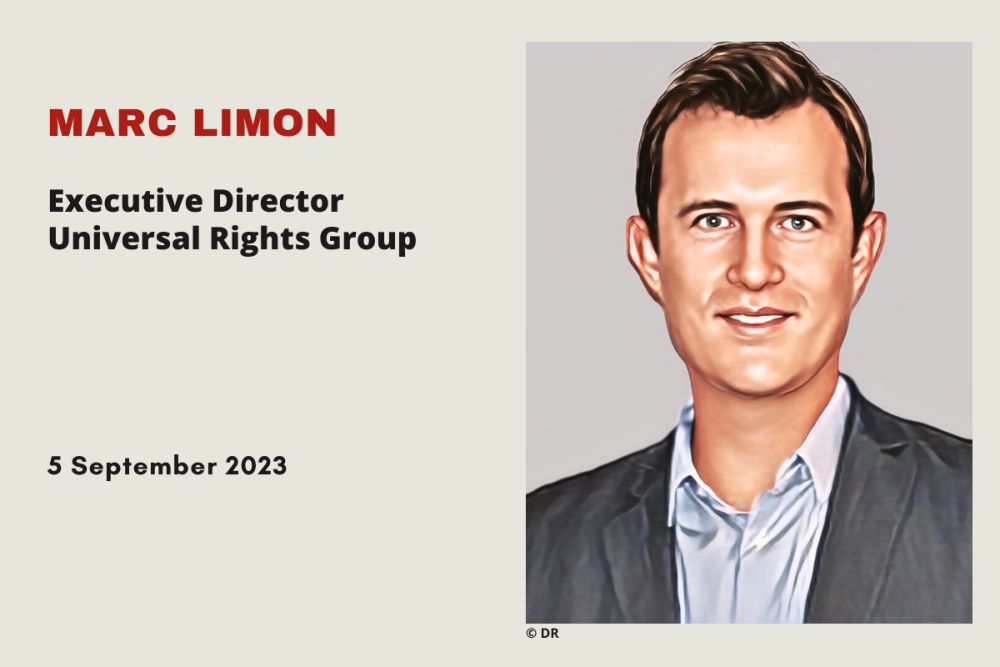The interview | Marc Limon
 |
How would you present your organization in a few words? What entails your position? What is your goal? |
The Universal Rights Group (URG) is a think tank focused on human rights. It is one of the only – if not the only – international think tanks focused exclusively on human rights. As a think tank, URG’s work differs from that of well-known advocacy NGOs such as Amnesty and Human Rights Watch in that we work with (almost all) States in Geneva to strengthen the efficiency, effectiveness, and accessibility (e.g., for Small States) of the international human rights machinery (e.g., the Human Rights Council and its mechanisms, and the Treaty Bodies), and also work with those States (often alongside UN agencies and programmes) to strengthen their capacity to engage with the UN human rights machinery and implement their international human rights obligations and commitments at a domestic level. In this sense, a key objective of URG is to ‘connect the international with the national’ or ‘translate universal rights into local reality.’
I co-founded URG in 2013 (last April, we turned ten years old) and currently act as its Executive Director. As well as in Geneva, URG has offices in New York, Bogota, and Nairobi.
 |
Among the concentration of actors in Geneva (IOs, NGOs, permanent missions, academia, and the private sector), who do you work with and how? |
We work most closely with UN member States – the duty-bearers under international human rights law and the actors which, through their actions or inactions, have the best impact on the enjoyment – or violation – of human rights. URG works closely with developed States, especially countries such as Denmark and Norway, but focuses much of its time and resources working with developing countries, especially LDCs, and SIDS, both to bring issues of concern to those countries to the attention of the UN (e.g., the impacts of climate change and environmental degradation on human rights) and to work with them to build capacity and drive domestic improvements in the enjoyment of human rights.
Over recent years, URG has increasingly also worked with UN agencies and programmes, such as UNICEF, UNFPA, and UNEP, and with donor States, both to measure the on-the-ground impact of the UN human rights mechanisms (i.e., the Special Procedures, Treaty Bodies, and UPR) and better leverage development assistance to strengthen the enjoyment of human rights at the domestic level. Reinforcing the enjoyment of human rights is in turn critical to realising the SDGs ‘leaving no one behind,’ to reinvigorating democracy around the world, and to confronting the triple plenary crises of climate change, pollution, and biodiversity loss.
 |
What are the strengths and weaknesses of Geneva with regards to the development of your activity? |
Geneva is the capital of the universal, global human rights system and, therefore, the capital of URG’s work. A great deal of our work takes place in Geneva, focusing on improving the efficiency, effectiveness, and accessibility of the Human Rights Council and its mechanisms, the Treaty Bodies, and helping States (especially developing countries) engage more effectively with the system. However, URG is also one of the few international civil society actors focused on ‘connecting the international and the national’ – i.e., taking the outputs of the UN human rights eco-system in Geneva (in particular recommendations issued by the mechanisms) and working with relevant governments, UN agencies, and donors, to ‘translate’ that UN-level output into better national laws, policies, and practices.
Notwithstanding Geneva’s importance as the UN’s ‘human rights capital,’ unless the work done here is linked with and relevant to the lived realities of individual rights-holders at the national/local level, and unless that work has a real impact on people’s lives and rights, then it will always lack meaning.
 |
|
There’s an urgent need to reform the UN Charter to reflect the world of today rather than the world of the 1940s. Of course, that should include Security Council reform (reforming its permanent membership and removing the veto), giving greater prominence to environmental issues. But it must also include making human rights one of the three equal pillars of the UN – by making the Human Rights Council a main body of the UN (like the Security Council and ECOSOC) and by increasing the human rights pillar’s financial resources so it is commensurate with the security and development pillars. Without respect for the promotion/protection of human rights, it will remain impossible to achieve neither peace and security nor sustainable development: ‘leaving no one behind.’
Is such a reform of the Charter likely? Probably not, but we must, in any case, work to strengthen the human rights pillar.
 |
What question would you like to have been asked? And what keeps you “awake at night”? |
I would have asked about URG’s achievements. One, I would have pointed out, is our leadership role over a decade in the push for UN recognition of a new universal right: the right to a clean, healthy, and sustainable environment. This right, recognized by the Human Rights Council in 2021 and by the General Assembly in 2022, adds a new critical tool to help/push the international community to address the triple environmental crises before it is too late.
